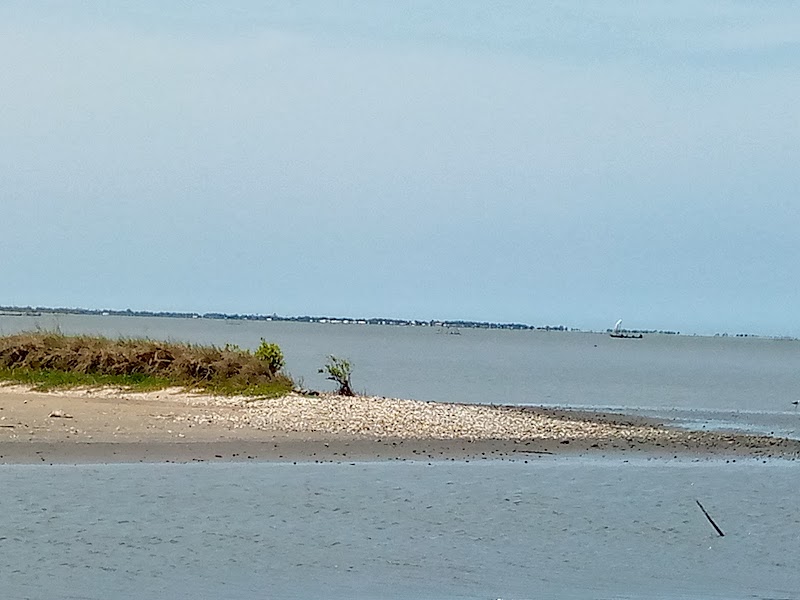
Rhythms of Heritage: Exploring Volta Region Cultural Festivals in Denu
Denu in Ghana's Volta Region offers a vivid glimpse into Ewe cultural heritage through dynamic festivals filled with music, dance, and communal spirit. Visitors experience not only lively celebrations but also practical insights into local traditions, making it an enriching travel adventure.
Dress for Variable Terrain
Festival sites can include dusty paths and occasional muddy spots, so wear breathable, sturdy shoes that handle uneven, wet, or dry conditions comfortably.
Stay Hydrated Throughout
The tropical climate and energetic festival atmosphere can lead to quick dehydration—carry at least 1.5 liters of water per day.
Time Your Visits Wisely
Attend ceremonies in cooler morning or late afternoon windows to avoid peak heat and crowds when possible.
Engage Respectfully with Locals
Approach cultural activities with sensitivity; ask permission before photographing individuals, and be open to discussions about traditions to enrich your experience.
Rhythms of Heritage: Exploring Volta Region Cultural Festivals in Denu
The Volta Region of Ghana pulses to the beat of rich cultural traditions, with Denu standing as a vibrant hub for some of its most spirited festivals. Here, cultural heritage is not just remembered; it's lived loud and clear through dance, drumming, and communal celebration. These festivals offer visitors a front-row seat to the complex layers of Ewe culture—where every movement, costume, and chant carries deep meanings and stories passed down across generations.
Attending a festival in Denu means stepping into a world where the environment itself joins the celebration. The tropical wind carries drumbeats through palm groves and along the Lagoons, daring you to join the dance. Brightly clad revelers move with fierce precision, each gesture a dialogue with the past, the earth, and the community’s future. This is not merely entertainment; it’s an active, communal pulse that binds people.
Practicality is key when planning your visit. The main festival events typically span two to four days, with activities scheduled during mornings and late afternoons to avoid peak midday heat. Expect some walking across uneven village roads and simple paths lined by dense greenery and open market areas. Light, breathable clothing and sturdy footwear designed for varied terrain will keep you comfortable. Staying hydrated isn’t a luxury—it’s necessary as humidity and festival energy combine to push your limits.
Most of the celebrations center on the traditional Ewe rites involving music, storytelling, and processions, but festival markets showcase crafts and local gastronomy—an immersive way to interact with the culture on a personal level. Engaging with locals respectfully will enhance your experience; many are proud storytellers eager to share the significance behind each ritual and artifact.
Timing your visit between December and February aligns perfectly with the peak festival season, coinciding with traditional harvest celebrations, but also brings larger crowds and higher temperatures. Early mornings and late afternoons carry a softer light and cooler air, ideal for both participation and photography. Remember, the terrain is modest but lively—rough dirt paths and occasionally muddy spots after rains demand good outdoor shoes.
For the adventurous traveler looking to stretch beyond the festival grounds, the nearby coastal trails offer a quieter contrast, with mangrove-lined waterways daring you to explore their reflective stillness.
In all, Denu’s cultural festivals represent a dance of history and living tradition interwoven with nature’s unpredictable rhythm. To join in is to embrace an experience both spirited and authentic, a challenge to your curiosity and stamina, rewarded with profound cultural insight and unforgettable moments.
Nearby Trips
All Adventures
Boat Charters
Water Activities
Adventures near Denu, Volta Region
Discover the unique and memorable adventures that make Denu, Volta Region special.
Frequently Asked Questions
When are the key festivals held in Denu?
Most major cultural festivals take place between December and February, coinciding with harvest season and traditional Ewe celebrations.
Are festival events suitable for children and families?
Yes, many events are family-friendly, with lively music and dances that appeal to all ages, though some ceremonies may require quieter respect.
What's the best way to transport oneself around Denu during festivals?
Walking is the primary mode within festival grounds; for longer distances, local shared taxis or tro-tros connect to nearby towns.
Are there any particular wildlife species to observe nearby?
The surrounding coastal and lagoon areas are habitats for mangrove birds such as kingfishers and herons, which can often be spotted during quieter moments.
How do I respectfully engage with locals during the festivals?
Ask permission before taking photos, listen when elders explain traditions, and avoid interrupting ceremonies to honor community norms.
Are there any environmental considerations to keep in mind?
Waste management can be limited during festivals; carry reusable items, avoid littering, and support local conservation initiatives if possible.
Recommended Gear
Sturdy Hiking Shoes
Protects feet on uneven village terrain, from dusty roads to occasional mud.
Lightweight, Breathable Clothing
Helps stay cool and comfortable during hot daytime festival activities.
Reusable Water Bottle
Keeps you hydrated in humid conditions; refill at safe water points.
Sun Protection (Hat & Sunscreen)
Essential during open-air events to prevent sunburn and heat exhaustion.
Local Insights
Hidden Gems
- "Lesser-known lagoon viewpoints offering calm reflections at sunrise"
- "Small artisan villages nearby where traditional crafts are made away from the main market"
Wildlife
- "Mangrove kingfishers"
- "Water birds like herons and egrets"
- "Butterflies frequenting festival greenery"
History
"Denu’s cultural festivals stem from centuries-old Ewe traditions, celebrating harvest cycles, ancestral connection, and community unity through rhythmic music and storytelling."
